When it comes to protecting your long-term health, the HPV Vaccine Bali plays a crucial role in preventing one of the most common yet often overlooked infections—Human Papillomavirus (HPV). This virus affects millions of people worldwide and is linked to various health issues, from genital warts to several types of cancer. Whether you are a local resident or an international visitor, understanding what HPV is, how it spreads, and how vaccination can safeguard your future is essential. In this guide, we’ll cover everything you need to know about HPV, its risks, symptoms, prevention strategies, and why the HPV vaccine—especially Gardasil 9—is one of the most effective tools available today.
What is Human Papillomavirus (HPV)?
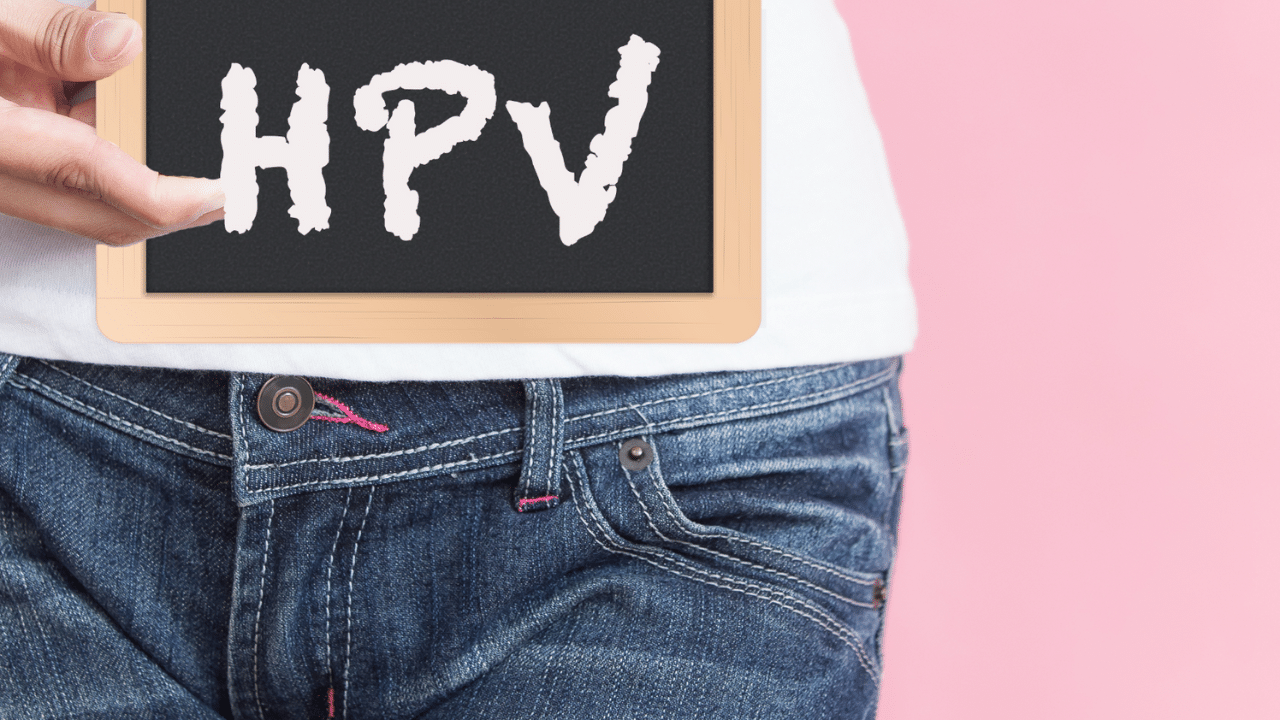
Human Papillomavirus, commonly known as HPV, is one of the most widespread sexually transmitted infections in the world. This virus is not a single entity but rather a group of more than 100 closely related viruses, each identified by a number known as its HPV type. While many HPV infections are harmless and clear up on their own without causing any symptoms, some strains are far more dangerous. High-risk types of HPV are strongly associated with the development of precancerous changes and cancers in different parts of the body, including the cervix, anus, throat, vulva, vagina, and penis.
What makes HPV particularly concerning is its ability to remain undetected. In many cases, infected individuals may not show any visible symptoms, yet they can still transmit the virus to their partners. Certain strains cause visible signs like genital warts, but the most threatening types often go unnoticed until they cause more severe complications. Because of this hidden risk, HPV is a major public health concern globally, and preventive measures such as regular screenings and vaccination are essential to reduce the long-term impact of this infection.
Causes and Risk Factors of HPV
HPV spreads primarily through intimate skin-to-skin contact, including vaginal, anal, or oral sex. Risk factors include:
- Having multiple sexual partners
- Engaging in unprotected sex
- Having a weakened immune system
- Starting sexual activity at a young age
Both men and women can contract HPV, making prevention a shared responsibility.
Symptoms of HPV
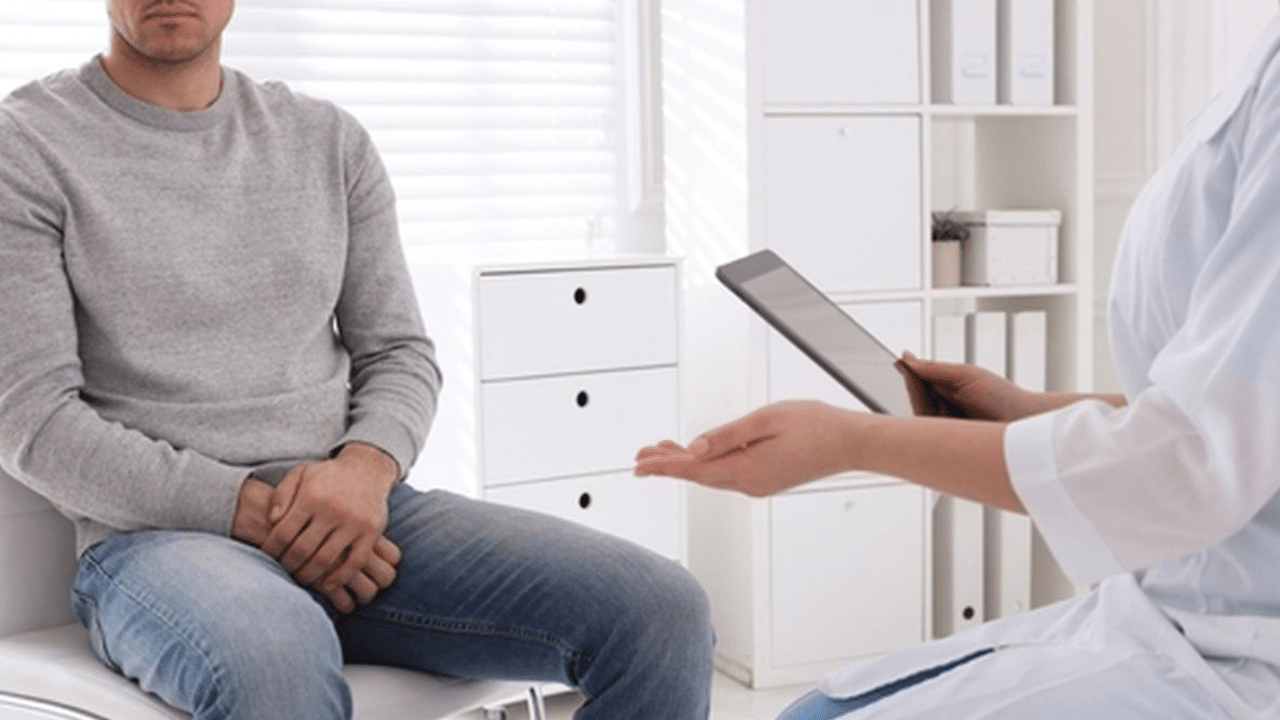
In many cases, HPV shows no symptoms, which makes it difficult to detect without medical screening. This is why many people can carry the virus for years without even knowing it. However, depending on the strain, HPV may manifest in different ways:
- Genital warts – These are small growths or bumps that appear in the genital or anal area. They can vary in size, shape, and number, sometimes appearing as flat lesions, small cauliflower-like clusters, or raised bumps. Although genital warts are not life-threatening, they can cause discomfort, itching, and emotional distress.
- Respiratory papillomatosis – In rare cases, HPV can cause warts to grow in the respiratory tract, including the voice box and airways. This condition, known as recurrent respiratory papillomatosis (RRP), can lead to breathing difficulties, voice changes, and in severe cases, airway obstruction. It is uncommon but highlights the diverse ways HPV can affect the body beyond the genital area.
- Precancerous lesions in the cervix – High-risk strains of HPV can cause abnormal cell changes in the cervix. These changes are often detected through Pap smears or HPV DNA tests before they develop into cervical cancer. Regular screenings are essential, especially for women, as early detection makes treatment more effective and reduces the risk of cancer progression.
- Persistent infection with high-risk HPV types – While many HPV infections resolve naturally, persistent infection with certain high-risk strains (such as HPV-16 and HPV-18) can lead to serious complications. Over time, these infections may cause cervical, anal, penile, vulvar, vaginal, and oropharyngeal cancers. Because the progression from infection to cancer can take years, prevention through vaccination and routine medical checks is crucial.
Recognizing the many faces of HPV is key to understanding why prevention and early detection matter so much. While some infections may cause only minor symptoms—or none at all—others can silently progress into life-threatening conditions over time. Regular screenings, combined with the protection offered by the HPV vaccine, provide the most effective way to reduce these risks. By staying proactive about health, both men and women can safeguard themselves against the hidden dangers of HPV and protect their long-term well-being.
Preventing with HPV Vaccine
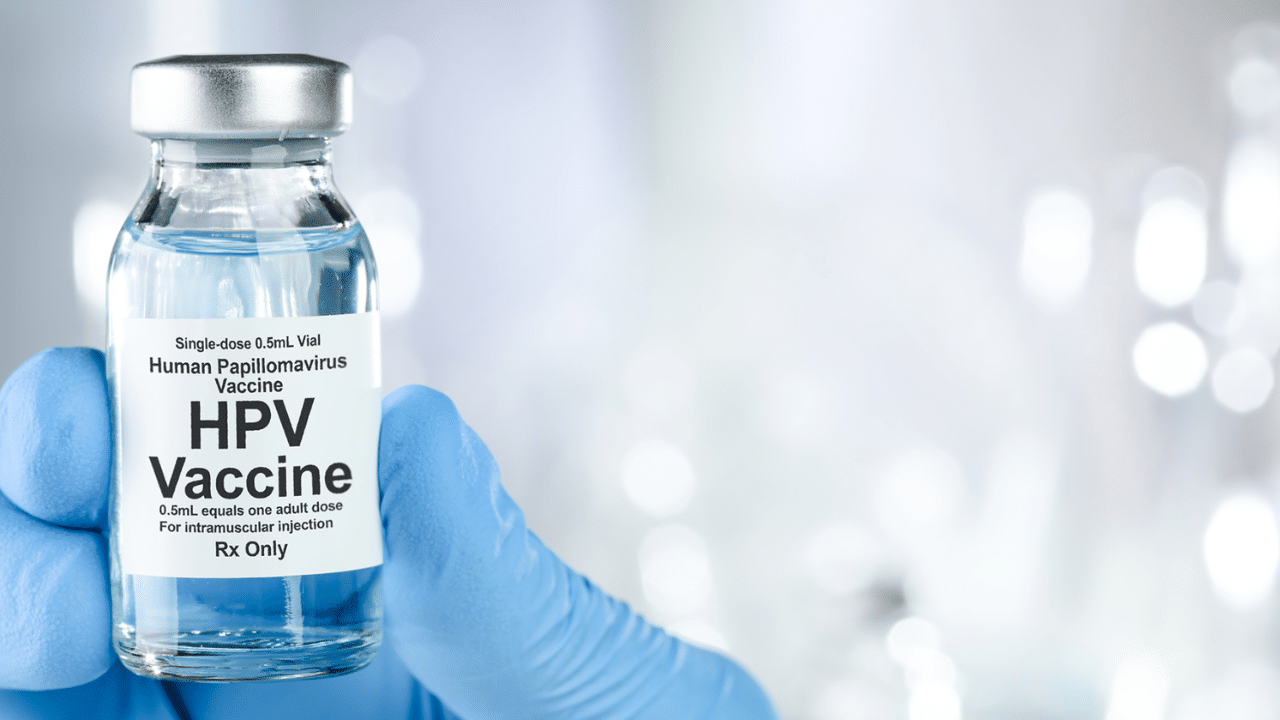
The HPV vaccine is specifically developed to protect the body against infections caused by certain high-risk strains of the Human Papillomavirus. These strains are the leading cause of several serious health problems, including cervical cancer, other genital cancers, and oropharyngeal cancers, as well as less severe but troublesome conditions such as genital warts. By training the immune system to recognize and fight the virus before it can cause infection, the vaccine significantly reduces the risk of developing HPV-related diseases later in life.
Receiving the HPV Vaccine Bali offers a strong layer of protection for both locals and international visitors who want to take a proactive approach to their health. Bali, being a hub for wellness tourism and medical services, provides easy access to safe and effective HPV vaccination programs, including the advanced Gardasil 9 vaccine. Whether you are a young adult looking to prevent future health risks or a parent seeking to protect your children, getting vaccinated in Bali ensures that you are safeguarded against the strains of HPV most commonly associated with cancer and genital warts.
What Does the HPV Vaccine Prevent?
The HPV vaccine is a powerful tool in reducing the risk of several serious health conditions caused by the Human Papillomavirus. By targeting the most dangerous HPV strains, it helps protect against:
- Cervical cancer – Nearly all cases of cervical cancer are linked to high-risk HPV types, particularly HPV-16 and HPV-18. Vaccination drastically lowers the risk by preventing these infections before they cause precancerous changes.
- Vaginal and vulvar cancers – These cancers are less common than cervical cancer but are also closely tied to HPV. The vaccine shields women from strains that cause abnormal cell growth in the vulva and vagina.
- Anal cancer – Both men and women are at risk of HPV-related anal cancer. Vaccination reduces the chance of developing this disease, which has been steadily rising in prevalence worldwide.
- Oropharyngeal cancers (throat, tongue, and tonsil cancers) – HPV infection is now recognized as a major cause of cancers in the throat and mouth, especially in the tonsils and base of the tongue. By preventing high-risk HPV strains, the vaccine offers strong protection.
- Genital warts – Caused primarily by HPV types 6 and 11, genital warts are not life-threatening but can cause significant physical discomfort and emotional distress. The HPV vaccine helps prevent these outbreaks, improving quality of life.
By preventing both cancerous and non-cancerous HPV-related conditions, the HPV vaccine offers comprehensive protection for men and women alike. Accessing the HPV Vaccine in Bali ensures that residents and visitors can take proactive steps to safeguard their health, reduce the risk of serious diseases, and enjoy peace of mind knowing they are protected against the most common and dangerous strains of HPV.
Who Should and Not Get the HPV Vaccine?
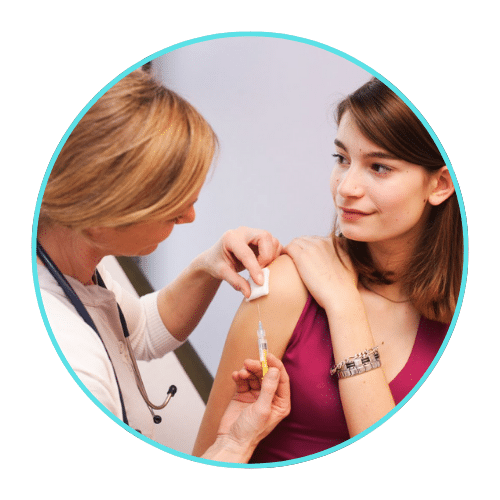
The HPV vaccine is recommended for:
- Girls and boys aged 9–14
This is considered the optimal age for vaccination because the immune response is strongest at this stage, and it provides protection before any potential exposure to HPV through sexual activity. Early vaccination helps ensure long-term defense against the most harmful HPV strains. - Young adults up to age 26 who were not previously vaccinated
For those who missed vaccination during adolescence, catch-up vaccination is highly recommended. Even if they may have already been exposed to HPV, the vaccine can still protect against other strains they have not yet encountered. - Adults aged 27–45
While the vaccine is not routinely recommended for everyone in this age group, it can still provide benefits for individuals at risk of new HPV infections. People with multiple partners, a new sexual partner, or weakened immune systems may especially benefit. In this case, consultation with a healthcare provider is essential to determine whether vaccination is appropriate.
Not everyone is eligible for HPV vaccination. People who should avoid it include:
- Pregnant women
HPV vaccination is not recommended during pregnancy. If a woman is found to be pregnant after starting the vaccine series, remaining doses should be postponed until after childbirth. However, the vaccine is safe for breastfeeding women. - Individuals with severe allergies to vaccine ingredients
Anyone with a known severe allergic reaction (for example, to yeast or other vaccine components) should not receive the HPV vaccine. Allergies should always be discussed with a healthcare provider before vaccination. - Those who experienced a serious allergic reaction to a previous dose
If someone had a life-threatening allergic reaction after a prior HPV vaccination, further doses should be avoided. In such cases, medical professionals will help explore other ways to monitor and protect against HPV-related health risks.
Understanding who should and should not receive the HPV vaccine is essential for ensuring safety and maximizing its protective benefits. While the vaccine is highly recommended for children, adolescents, and certain adults, medical guidance is necessary for those with specific health conditions or allergies. By following these recommendations, individuals can receive the full advantages of HPV vaccination while minimizing risks, ultimately contributing to long-term protection against HPV-related diseases.
HPV Vaccine Schedule
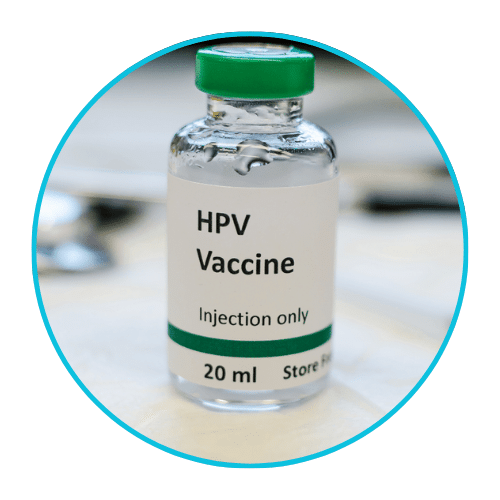
Getting the HPV vaccine at the right age and following the correct schedule is crucial for maximum effectiveness. The timing and number of doses depend on the age at which vaccination begins. By following the recommended schedule, individuals can ensure strong and long-lasting protection against HPV-related infections and cancers.
- Children aged 9–14: Two doses, 6–12 months apart
This age group only requires two doses because their immune systems respond more effectively to the vaccine. The first dose primes the immune system, and the second dose boosts and strengthens long-term protection. It is important that the two doses are not given too close together—at least 6 months apart—to achieve the best results. - Individuals 15 and older: Three doses over six months
For teenagers and adults starting the vaccine at age 15 or later, three doses are necessary. The schedule typically follows a 0, 1–2 months, and 6 months timeline. This ensures the body develops sufficient immunity since older adolescents and adults may not respond as strongly to just two doses. - Catch-up vaccination is recommended if doses were missed
If someone did not complete their vaccine series on time, they do not need to restart the entire schedule. Instead, the remaining doses should be completed as soon as possible to achieve full protection. Catch-up vaccination is particularly important for young adults who may have missed their recommended schedule during adolescence.
Following the recommended HPV vaccine schedule is key to achieving the strongest and most lasting protection against HPV-related diseases. Whether receiving two doses as a child or three doses as an older adolescent or adult, staying on schedule ensures the immune system develops full defense against the virus. Catch-up vaccination provides an important opportunity for those who missed doses, making it never too late to safeguard long-term health.
Possible Side Effects of the HPV Vaccine
Like other vaccines, HPV vaccines are generally safe but may cause mild side effects such as:
- Pain, redness, or swelling at the injection site
- Headache or fatigue
- Mild fever
- Dizziness or nausea (rare)
While the HPV vaccine is considered very safe, it is normal to experience mild side effects such as soreness at the injection site, mild fever, headache, fatigue, or occasional dizziness and nausea. These reactions are typically short-lived and resolve on their own. Serious side effects are extremely rare, making the HPV vaccine a safe and effective way to protect against HPV-related diseases.
Gardasil 9: The Most Comprehensive HPV Vaccine
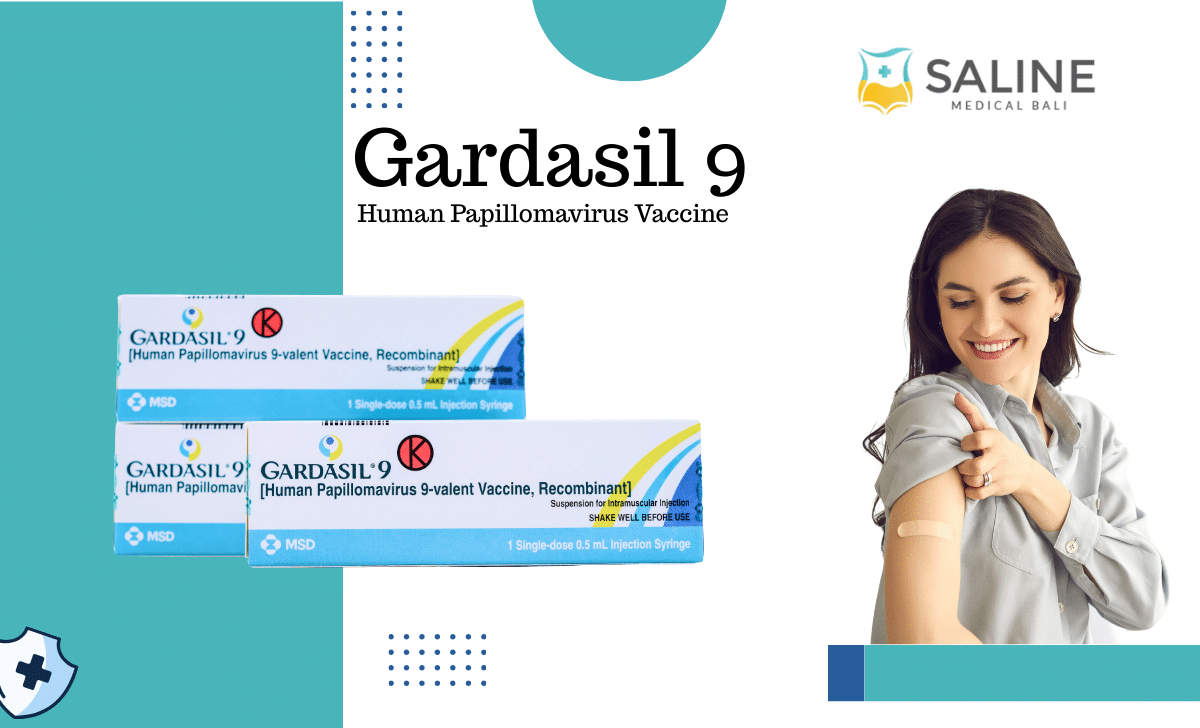
Gardasil 9 is the most advanced HPV vaccine available today, protecting against nine types of the virus—seven high-risk strains linked to cancers and two low-risk strains that cause genital warts. Each dose contains virus-like particles that safely mimic the virus to trigger the body’s immune defense without causing infection. By covering more strains than earlier vaccines, Gardasil 9 provides broader protection, significantly lowering the risk of cervical, anal, throat, vulvar, vaginal, and penile cancers, while also preventing most cases of genital warts.
The vaccine is recommended for children aged 9–14 with two doses given 6–12 months apart, while individuals aged 15–45 need three doses over six months. Catch-up vaccination is advised for those who missed earlier doses. Gardasil 9 is considered very safe, with mild side effects such as soreness at the injection site, low fever, or fatigue. Serious reactions are extremely rare, though the vaccine should be postponed during pregnancy. With its strong safety record and comprehensive protection, Gardasil 9 remains the best preventive measure against HPV-related diseases.
Is the HPV vaccine safe?
Yes. Extensive studies confirm that the HPV vaccine is safe and effective.
At what age is the HPV vaccine most effective?
It is most effective when given before exposure to the virus, ideally between ages 9 and 14.
Can men benefit from the HPV vaccine?
Yes. Men are at risk of HPV-related cancers and genital warts, so vaccination is recommended.
Do I still need Pap smears if I get the HPV vaccine?
Yes. The vaccine does not protect against all cancer-causing HPV types, so regular cervical screening remains important.
Where can I get the HPV Vaccine Bali?
Clinics and hospitals in Bali provide access to Gardasil 9 and other HPV vaccines. It is recommended to consult a medical professional to determine the right vaccination schedule.
